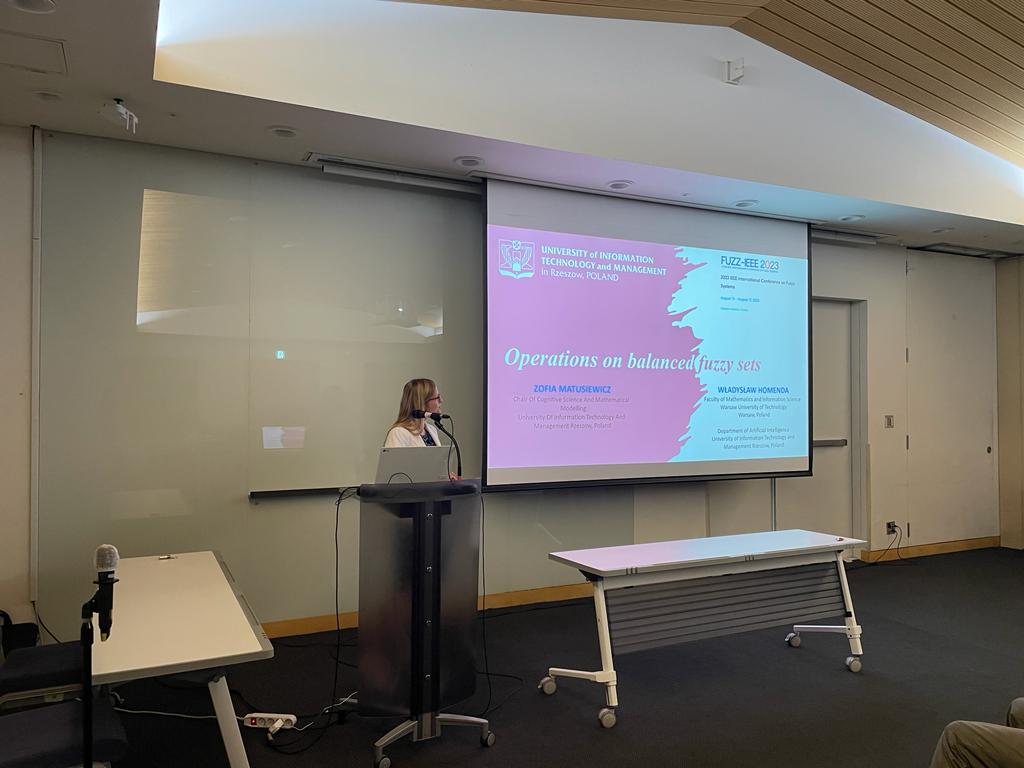In the realm of computer science, the concept of uncertainty has long intrigued scholars and researchers. As far back as the 1930s, Jan Łukasiewicz recognized the need for values that could bridge the gap between true (1) and false (0). This epiphany led him to introduce the notion of uncertainty, initially considering a value of ½ and later expanding the spectrum to encompass values within the range of [0, 1]. Subsequently, the revolutionary idea of fuzzy sets was introduced and popularized by Lotfi A. Zadeh in 1965. These breakthroughs paved the way for the development of decision support systems, fuzzy controllers, and a myriad of techniques that have profoundly influenced modern society.
Today, one of the most important events for scientists engaged in the study of fuzzy sets, fuzzy logic, and their wide-ranging applications is the international IEEE International Conference on Fuzzy Systems, also known as FUZZ-IEEE. This international conference stands as a beacon in the realm of fuzzy sets and systems, drawing experts from around the globe to discuss the latest advancements in the field. This year’s conference was held in Songdo Incheon, South Korea, from August 13th to 17th.
During this year’s event, three researchers from the University of Information Technology and Management in Rzeszów presented their work. These distinguished individuals include Professor Dr. Hab. Eng. Władysław Homenda, Dr. Zofia Matusiewicz, and Dr. Eng. Mariusz Września.
One of the conference’s standout presentations was the collaborative effort of Dr. Zofia Matusiewicz and Professor Homenda, titled „Operations on Balanced Fuzzy Sets.” This groundbreaking work introduced novel operations on balanced fuzzy sets. Notably, these sets allow for the consideration of negative information—the degree of non-belonging to a set. It is essential to highlight that Professor Homenda pioneered the concept of fuzzy balanced sets in 2006. By incorporating negative information, real-world scenarios can be analyzed comprehensively, factoring not only the degree of membership but also the degree of non-membership. This innovation aligns seamlessly with common concepts of deficit and excess, losses and gains, and more.
Moreover, the works of Dr. Mariusz Września, titled „Sequence Data Analysis and Management with Computational Intelligence,” and Professor Dr. Hab. Władysław Homenda, Eng., titled „Time Series Classification Based on Fuzzy Cognitive Maps and Multi-class Decomposition with Ensembling,” were presented at the Sequence Data Analysis and Management with Computational Intelligence session.
In today’s data-rich landscape, where time series, streaming data, and event sequences are omnipresent, the need for intelligent analysis and management of such vast datasets has become paramount. Traditional approaches often fall short in addressing these challenges, underscoring the significance of ad hoc computational methods.
The research showcased at FUZZ-IEEE 2023 introduces groundbreaking approaches to intelligent data sequence analysis and management. These contributions promise to reshape the way we handle complex data sequences, offering innovative solutions that will undoubtedly have a profound impact on various real-world applications.
All in all, the works presented at the conference hold the promise of revolutionizing the way we handle uncertainty, make decisions, and manage data sequences in an increasingly data-driven world.



